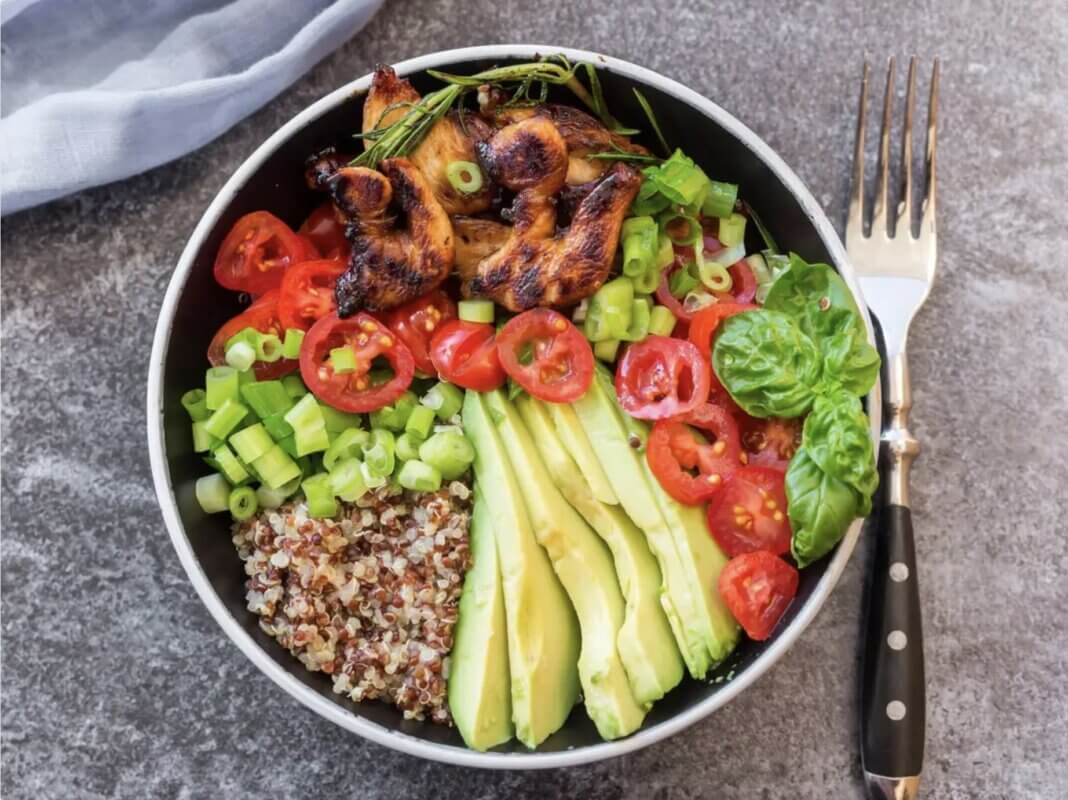Eating post-workout helps your body replenish lost nutrients and repair muscles, making this an essential component of your workout. During an exercise session, you tear your muscle tissues, sweat off needed electrolytes, and diminish your glycogen storage.
The best way to support your body after a workout is to fuel with proper nutrition, which enables you to recover faster and stronger. Educating yourself on when to consume food, what are the right foods to eat post-workout, and how long you should wait to eat based on what type of workout you performed is essential. Following these tips can help.
Why You Should Eat Post Workout
Challenging or time-intensive workouts are known for leaving your muscles starved for fuel. Yet, if you are like most people, you may not realize that skipping meals post-workout can contribute to an imbalance in your body. This practice can not only can leave you feeling sluggish and depleted but also create an environment internally that is not conducive to building muscle or repairing tissue damaged from exercise.

The goal of post workout nutrition is to eat adequate macronutrients before, during—and especially after—exercise. Research has shown that when consuming more than 1.2 grams of carbohydrates per kilogram of weight per hour is adequate to restore glycogen stores without additional protein. However, adding 0.2 to 0.5 grams of protein per kilogram of weight per hour is recommended if you’re consuming less than 1.2 grams of carbohydrates per hour. This amount of carbohydrates and/or protein is needed to optimize muscle protein synthesis. Note that endurance training will need more carbohydrates than protein in a day, while resistance training will need more protein.
Protein consumption is recommended at a dose of 20 to 40 grams every three to four hours with a casein consumption of 30 to 40 grams in the evening to optimize muscle protein synthesis.
According to the Journal of the International Society of Sports Nutrition, the post-exercise rapid recovery is only important if another bout of exercise is to occur within the same day. Otherwise, carbohydrate and protein intake within 24 hours will be adequate to refuel completely.
For endurance training with a VOMAX greater than 70% and length grater than 90 minutes, you can expect to be consuming 1 to 4 grams of carbohydrates per kilogram of weight per day, up to even 8 to 12 grams of carbohydrates per kilogram of weight per day.
For resistance training, a brief break from exercising and then consuming 8 grams of carbohydrates per kilogram of weight per day may be needed to optimize muscle glycogen. Otherwise, similar to endurance training, 1 to 4 grams of carbohydrates per kilogram of weight per day will suffice. In both cases, consuming 20 to 40 grams of protein every three to four hours will be adequate.
Eating properly before and after you workout can help ensure you recover, repair your muscles, provide lost hydration, and recover nutrients that were lost.

Benefits of Eating Post Workout
The benefits of eating a post-workout meal are numerous. Here are just a few of the potential advantages of eating a post-workout meal or snack.
Replenishes Glycogen Storage
Glycogen is a necessary for any workout, whether you focus on cardio or resistance training. You can lose as much as 80% of your glycogen storage when working out; and without glycogen, your energy level plummets.
Grows Muscles
You should consume protein during your anabolic window, which is the period of time after a workout in which you need to consume protein for your muscles to grow and build. In one study, participants were assigned to receive 20 grams of protein or 20 grams of dextrose 1 hour before and after weight training. What researchers discovered was that total body mass, fat-free mass, and thigh mass were profoundly greater in the group that consumed protein when compared with the group that received dextrose.
Hydrates Your Body
Replenishing the fluids you lost while working goes without saying. But you will find some added benefits as well. According to Harvard Health, adequate hydration also can regulate your body temperature, help prevent infections, move nutrients to your cells, keep all your organs functioning, improve sleep quality, better your mood, and reduce brain fog.
What Your Post-Workout Meal Should Include
Preparing for a post-workout meal doesn’t have to be complicated. The most important part is planning your meals so that you have a strategy in place and know what you are going to eat and drink as soon as your workout is complete.
In general, your post-workout meal should include a mix of carbohydrates, lean proteins, and hydration. Here are some guidelines on what you should following a workout. But you will want to experiment with what works best for you.
Consume Protein
Protein right after a workout can enhance glycogen resynthesis. According to the National Academy of Sports Medicine, the general consensus is that an exerciser should consume 20 grams of protein post workout.
For anyone interested in the more minutia detail of protein consumption, you could calculate this dose to make it more approximate to your weight. To do so, multiply between 0.25 to 0.3 grams per kilogram or 0.11 to 0.14 grams per pound of your weight. For example, if you weigh 176 pounds, your protein intake can range from 20 to 24 grams post workout.
Add in Carbs
From its position stand on nutrient timing, the International Society of Sports Nutrition says that consuming 0.5 to 0.7 grams of carbohydrates per pound or 1.1 to 1.5 grams per kilogram of body weight within 30 minutes after exercise can create proper glycogen resynthesis.
Carbohydrate Options:
| Instead of This | Try This |
| White potatoes | Sweet potatoes have a higher magnesium content, which is an important mineral to replenish after a workout. |
| Peanut butter and jam sandwich | A peanut butter and banana sandwich gives you more potassium from the addition of the banana and less sugar by cutting out the jam . |
| Apple | Watermelon is higher on the glycemic index, getting nutrients right to your cells. Plus, the fruit has a high water content and is easier on a post-workout stomach |
Here are some options on what to choose for your post workout meal.
Replenish Fluids
According to the University Health Services at the University of California Berkeley, you should drink 16 to 24 ounces of fluid for every pound of body weight lost after exercise. In 1 hour of exercise, your body can lose more than a quart of water.
It is not plausible to recommend a standardized fluid replacement because everyone has different variables in their bodies and workouts, says the American College of Sports Medicine. The most natural hydration fluid you can drink is water.
However, if you have an intense workout session or exercise for more than 2 hours, you should drink a beverage containing electrolytes, preferably a mix of sodium, potassium, magnesium, and chloride. This helps replace the minerals lost when you sweat. Here are some additional hydration tips.
- Rehydration can happen faster if you have sodium in your beverage. This does not need to come from a sports drink.
- If sports drinks are too heavy for you post workout, coconut water is an optimal alternative. In a research study, coconut water was found to promote rehydration with little to no difference when compared with sports drinks.
- Weighing yourself before and after you work out can help you know how much water you lost, allowing you to better track your hydration. This is especially helpful for intense workouts or when exercising in higher temperatures.
- Monitoring your urine is a way to check your hydration level. It should be pale yellow, unless your have taken a supplement within the last few hours.
When Should You Eat Post Workout
When to eat your post-exercise meal depends on your workout and your goals. Most likely, you will need to go through some trial and error to find what works best for your body. That said, researchers do provide some general guidelines.
For instance, if you perform intense weight resistance workouts to increase muscle size, you may want to consume 20 to 30 grams of lean protein and 30 to 40 grams of nutritious carbohydrates as close to your post-workout as possible.

For lighter cardio workouts, they suggest eating a well-balanced meal with the same ratio up to 1 hour after exercising. Keep in mind that some research suggests that the anabolic window diminishes without adequate carbohydrate and protein intake.
The most critical factor, though, in your post-workout meal is not necessarily nutrient timing but just ensuring you are eating the right foods for your fitness goals. Here are some additional guidelines to consider when planning your post-workout meals including how much of each macronutrient to consume.
Carbohydrates
At a minimum, you should replenish your glycogen stores with carbohydrates within 2 hours of exercise. According to the Journal of the International Society of Sports Medicine, delaying consumption of carbs by even two hours can reduce the rate of muscle glycogen re-synthesis by as much as 50%.
Protein
The same journal also recommends consuming a protein mixed with your carbohydrate, in the form a supplement or whole foods within the 2-hour period. In the study, researchers discovered that a 60-minute cycling session resulted in a much greater glycogen re-synthesis when carbohydrates were paired with protein consumption than when compared with ingesting a calorie-equated, carbohydrate-only solution within the 2-hour window. Waiting 3 hours post-exercise did not increase glycogen synthesis.
Fluids
According to the American College of Sports Medicine, you should drink 23 ounces of fluid for every pound of weight lost when you exercised between the time you first workout and 1 to 2 hours before you start your next workout. Options include a sports drink, coconut water, or an electrolyte supplement available in a pill, powder, or capsule form.
Final Words
Discovering which nutritious foods work best for your body post-workout is often done through experimenting. You can try different whole foods, packaged liquids, and whey proteins and see how your body responds.
But you should strive to have a nutritional strategy in place for each exercise session so that your body can properly recover. For any questions on nutrition techniques and timing, it may help to speak with a registered dietitian or another healthcare provider.

